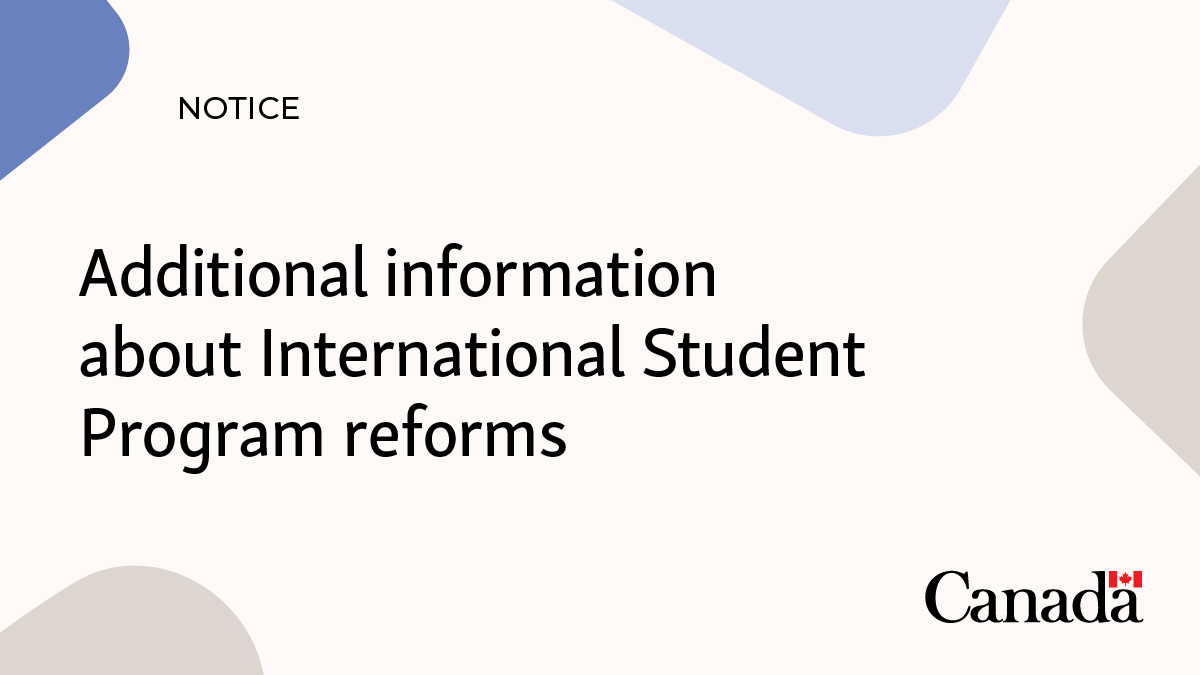

New Policy: International Student Program Reforms
Ottawa, February 5, 2024—Further information is being provided to clarify the announcement of an intake cap on new international study permit applications and other changes.(See the following chapter in the article) International students make important contributions to Canada’s campuses, communities and economy; however, we have seen unsustainable growth in the International Student Program in recent years. These recently announced reforms will support sustainable population growth in Canada and improve system integrity, while helping to ensure that international students have a positive experience in Canada.
As of 8:30 a.m. ET on January 22, 2024, most new post-secondary international students at the college or undergraduate level must provide a provincial attestation letter (PAL) from a province or territory with their study permit application. Immigration, Refugees and Citizenship Canada (IRCC) will return any application received that does not include a PAL, unless otherwise exempt.
This attestation will serve as proof that the student has been accounted for under a provincial or territorial allocation within the national cap. Provinces and territories have been asked to have a plan in place for issuing PALs by March 31, 2024. The Government of Canada is working with the Government of Quebec to determine how the certificat d’acceptation du Québec pour études could serve as a PAL.
International students whose applications were received by IRCC before 8:30 a.m. on January 22, 2024, as well as those who have already been approved for a study permit and intend to travel to Canada for an upcoming program, do not need to take further action as a result of the cap.
Who needs a provincial attestation letter?
Who doesn’t need a provincial attestation letter?
In recognition that graduates of master’s degree granting programs are excellent candidates to succeed in Canada’s labour market and potentially transition to permanent residence, we have made a change to the length of the PGWP, so that they have the opportunity to meet the required Canadian work experience in order to apply for their permanent residence.
Starting on February 15, 2024, a longer, 3-year post-graduation work permit will be available to those who are graduating from a master’s degree program that is less than 2 years and who meet all other PGWP eligibility criteria.
The length of PGWPs for programs other than master’s degrees will continue to align with the length of the study program, to a maximum of 3 years.
Who is eligible for a longer post-graduation work permit (PGWP)?
Some provinces allow public colleges to license their curriculum to be delivered by an affiliated private college. In these cases, students physically attend a private college, but graduate with a diploma from a public institution. Concerns have been raised with regard to the quality of education provided by these institutions, as well as the lack of sufficient student supports. The Auditor General of Ontario has also raised concerns about a lack of oversight into program quality and student services at these institutions.
As such, IRCC has made a change to restrict PGWPs for these institutions, anticipating that without the ability to apply for a PGWP, there will be a reduction in the number of international students enrolling in them.
Who is eligible for a PGWP after graduating from a public-private partnership college program?
Who is not eligible for a PGWP after graduating from a public-private partnership college program?
In the coming weeks, eligibility for open work permits for the spouses and common-law partners of international students will be updated.
What are the requirements for becoming a Canadian citizen? To become a Canadian citizen, you…
Writing a letter of invitation doesn’t mean you’re legally responsible for the visitor once they…
As of January 28, 2025, Immigration, Refugees and Citizenship Canada (IRCC) has updated the health…
The Super Visa is a multiple-entry temporary resident visa (TRV), issued with a validity of…
The Super Visa is a multiple-entry temporary resident visa (TRV), issued with a validity of…
If you applied for a new temporary resident visa, or a study or temporary work…